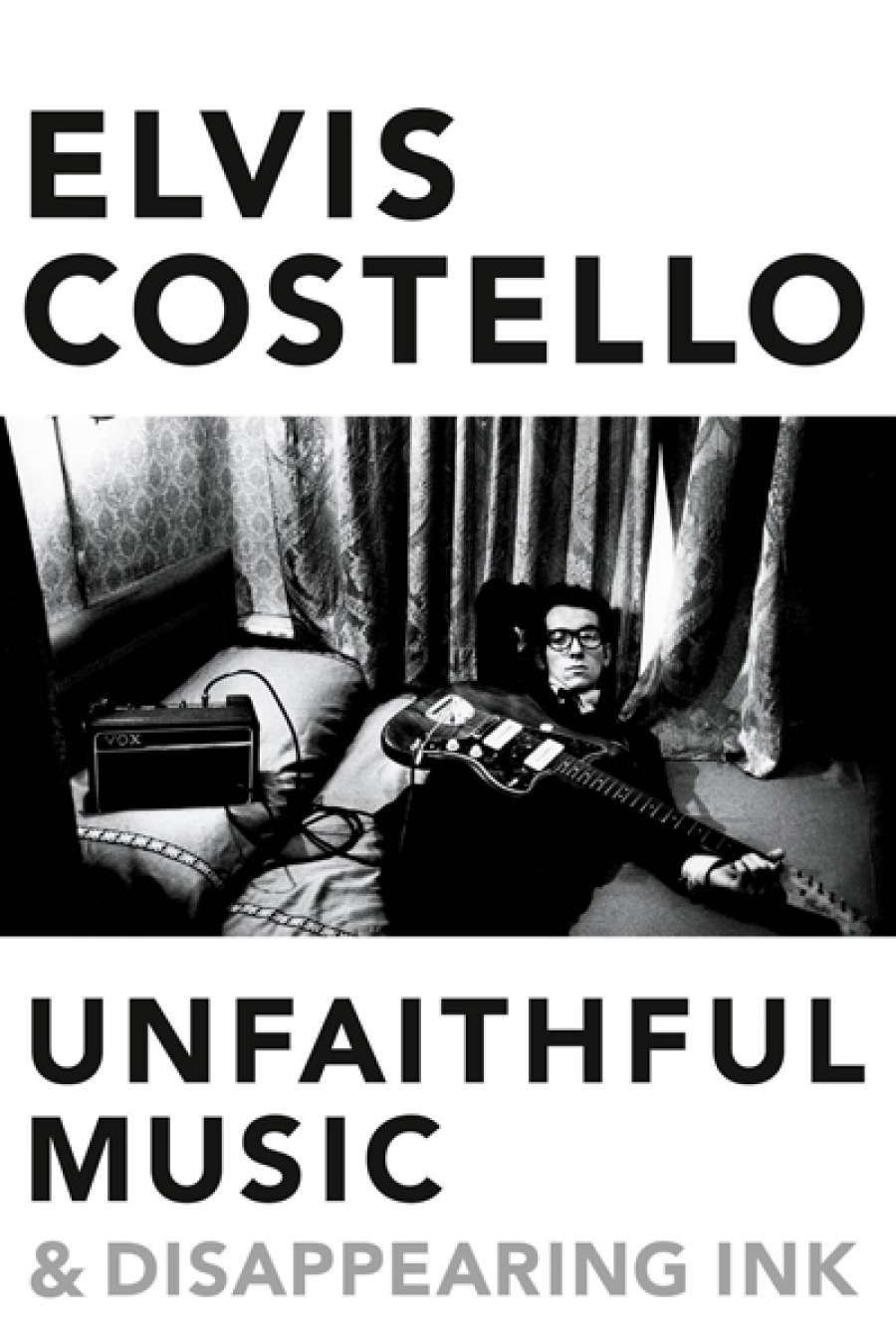
- Free Article: No
- Contents Category: Music
- Custom Article Title: Doug Wallen reviews 'Unfaithful Music and Disappearing Ink' by Elvis Costello
- Review Article: Yes
- Online Only: No
- Book 1 Title: Unfaithful Music and Disappearing Ink
- Book 1 Biblio: Viking, $34.99 pb, 676 pp, 9780241003473
Unfaithful Music and Disappearing Ink dutifully covers the trials of becoming a surprise pop star, from shooting music videos to lip-syncing songs for television, but Costello was made for a music career. He is a third-generation musician who grew up watching his father, Ross MacManus, sing and play trumpet in the Joe Loss Orchestra. When The Beatles rose to fame, Costello's father would learn their hit singles for the big band before passing the records on to his young son.
Despite his early snideness both in song and on stage, Costello and his well-oiled backing bands (first The Attractions and later The Imposters) became lasting additions to the mainstream musical establishment. Again, that is part of being steeped in classic song writing. Costello observes wryly that when he quoted Cole Porter in an interview it was mistaken for Sex Pistols front man Johnny Rotten. Besides, Costello didn't materialise from nowhere; he penned songs and played in teenage bands for years before recording a proper album.
His narrative skips around freely in time, often grouping together instances from across decades when they share a theme, but there is an overarching chronological order to the book. It is fascinating to trace Costello's evolution from a nerdy youth to a respected artist who has written operas, cut an album backed solely by a string quartet, and worked with everyone from Chet Baker to Johnny Cash.
But his willingness to impart anecdotes also makes for a lot of repetitive and superfluous tales about working with all those world-class collaborators. Insights into albums with Paul McCartney and Burt Bacharach are welcome, but Costello spends a disproportionate amount of time detailing one-off encounters with fellow music legends at special concerts and the like. While that does give the desired effect of Costello as a reverent music fan just as much as he is a revered musician, the sheer number of celebrity cameos wears down the reader who is waiting to read more about Costello's personal life or song-writing process.
Details of the former are sparingly dispensed. The description of his father's final days are very poignant. It will surprise none of his fans that Costello can write so well, but nor will his guardedness about his adult life. That means the seventeen years spent with his second wife, Pogues bassist Cait O'Riordan, is given only a handful of (admittedly memorable) pages. The dissolution of his first marriage, to Mary Burgoyne, is mentioned only in passing.
'Despite his early snideness ... Costello and his well-oiled backing bands ... became lasting additions to the mainstream musical establishment'
By contrast, he includes his third wife, the celebrated jazz singer and pianist Diana Krall, more frequently and more warmly. To his credit, Costello faces up to the most prominent demons from his past, including accusations of racism and misogyny, as well as his serial infidelity in the early years of his success. Among the lighter moments, he recounts his infamous 1977 appearance on Saturday Night Live, when he stopped a song partway through and broke into an unplanned number, as well as his colourful adventures touring America.
While it is enlightening and engaging overall, the memoir's bulk drags it down somewhat. Costello spends many pages on the lives of grandparents and great-grandparents. Despite those slower stretches, one's patience is rewarded when Costello taps into his passionate, encyclopedic knowledge of music. His celebrated knack for succinct quips is apparent all through the book, as is his trick of smuggling profundity into such one-liners. When writing about how he couldn't jibe with the gleaming artificiality of the prevailing pop hits of the mid-1980s, he opines: 'I felt like a blacksmith in a glass factory.'


Comments powered by CComment